
4 minute read
I Walked Off the End of the Flight Deck… Into the Sea
I Walked Off the End of Into the Sea!

Advertisement
By PR3(AW) Shane Enlow, VFA-27
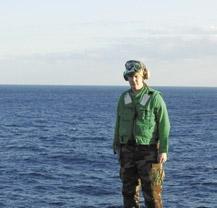
After serving on three different aircraft carriers and working the night shift for the majority of my four-and-a-half years in the Navy, I was no stranger to operating around the flight deck at night. While on deployment near the Great Barrier Reef of Australia, I had no real concern about volunteering to participate in a night flight-deck scrub-down (SCRUBEX).
I grabbed my float coat and cranial and headed to the island for muster with the FOD team. However, before going to the flight deck, my supervisor stopped me and made sure I did a full inspection of both my float coat and my cranial. I then put on my personal protective equipment (PPE) and went to the SCRUBEX.
Once on the flight deck, I noticed it was an especially dark night. A thick layer of clouds obscured the moon and stars. After muster, everyone lined up along the forward edge of the landing area on the port side of the ship. As I moved along the line of people to take my position on the far port side, I was looking toward the stern, not really paying attention to where I was going. I reached the end of the line and took an extra step toward what I thought was a few more feet of flight deck. However, I suddenly realized nothing was beneath my feet but night air. Confusion gave way to concern as I tumbled through the air. I just had stepped off the edge of the ship and was falling into the sea.
I yelled all the way down and kept yelling as I smacked the water on my left side. I instantly was submerged, but, just as quickly, I was forced back above water when my float coat inflated automatically. With my head above water, I was able to spit out some of the saltwater in my mouth and took a deep breath. I needed the air to continue yelling and waving my arms at a group of Sailors on the smoking sponson.
Unfortunately, no one heard me over the sounds of the ship, and I only could watch as the carrier passed by. I then located my strobe light, took it out, and activated it.
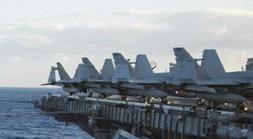
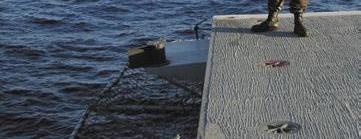
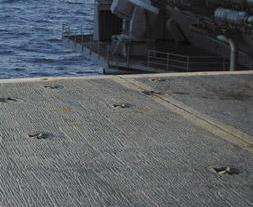
the Flight Deck…
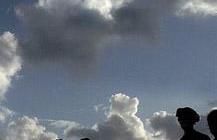

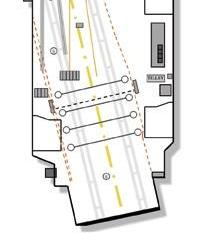
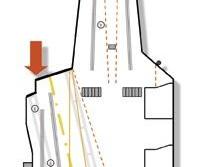

Photo by PHAN Ryan O’Connor
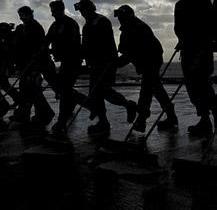
I was thankful it worked, but I wasn’t sure how effective it would be because I’d already lost sight of the ship due to the rough seas that night.
Being alone in the dark and floating on rough seas is a scary and lonely experience. The only light I could see anywhere was the flashing of my own emergency strobe. I hoped that someone would spot me and that I would be rescued quickly. It seemed like an eternity had passed before I noticed the lights of a rigid hull inflatable boat (RHIB) sent to rescue me. As soon as I saw the lights and recognized the boat, I yelled and waved my arms. Once the RHIB was close to me, a rescue swimmer jumped into the water, and, before I knew it, I was aboard the RHIB and headed back to the ship. Once aboard, I was taken to medical, where my CO and the rest of my chain of command were waiting to make sure I was OK. A full medical exam and several sets of X-rays showed no serious injuries. I was lucky to walk away with only some pain in my left leg and hip and a bruised ego. I felt like an idiot for having done something as careless and stupid as walking off the edge of the ship.
Looking back on the incident, I am very grateful my supervisor made me thoroughly inspect my PPE before heading to the flight deck. I am also happy I’d been trained to react to the situation by activating my strobe light. Later that night, I learned an airman from my squadron on the SCRUBEX detail was the only person who saw me fall overboard. He immediately went to flight-deck control and reported a man overboard. The only thing that gave away my position in the pitch-black night was my strobe light. I’m sure glad it worked.
Complacency creates a dangerous environment. All of the safety procedures—gear inspections, supervisory oversight, PPE training, and flight-deck situational awareness—are not things that should be taken lightly. My rescue at sea is proof of their importance.










